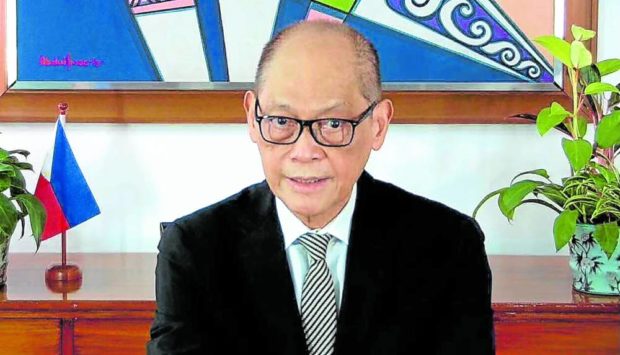Marcos gov’t wages ‘war’ vs inflation
The Marcos administration plans to form an interagency team that will be tasked to find ways to prevent prices of key goods and services from spiking. This is part of wider efforts to use tools other than raising interest rates to win the “war” against stubborn inflation, according to Finance Secretary Benjamin Diokno.
Diokno said in a statement that the technical working group (TWG) will consist of representatives from the National Economic and Development Authority and the Departments of Energy, Budget and Management, Trade and Industry, and Agriculture.
In particular, the planned TWG will be responsible for the objective and timely assessment of supply and demand conditions of key food items, such that if imports are deemed necessary to plug supply gaps, then this will be done in time and at the right quantities to stabilize prices.
“This responsibility should be taken away from vested groups,” Diokno said. “This will help ensure timely actions to avert short-term upticks in food prices.”
Benchmark rates
“If the Executive Department succeeded in controlling the sources of inflation on the supply side more effectively, there would be less reason for monetary authorities to raise policy rates,” he added.
The benchmark interest of the Bangko Sentral ng Pilipinas (BSP) was raised to 6 percent from 5.5 percent starting Feb. 17, as the BSP doubled down to shepherd inflation back toward its target range of 2 percent to 4 percent.
The BSP’s latest forecast is that the rate of increase in prices of goods and services will recede much slower than earlier expected.
The regulator now forecasts the 2023 average inflation to be 6.1 percent, faster than the 4.3 percent it forecast in November. Actual inflation in 2022 was recorded at 5.8 percent.
Meanwhile, researchers at state-run think tank Philippine Institute for Development Studies said taming elevated inflation and volatile foreign exchange as well as sustaining policy reforms would be key in boosting the Philippine economy in 2023.
A PIDS team comprising researchers Margarita Debuque-Gonzales, John Paul Corpus and Ramona Maria Miral recommended that pursuing balanced macroeconomic management and new growth drivers while addressing pandemic scars amid the slowdown of major economies is needed to bring the Philippine economy back to its prepandemic growth path. INQ

